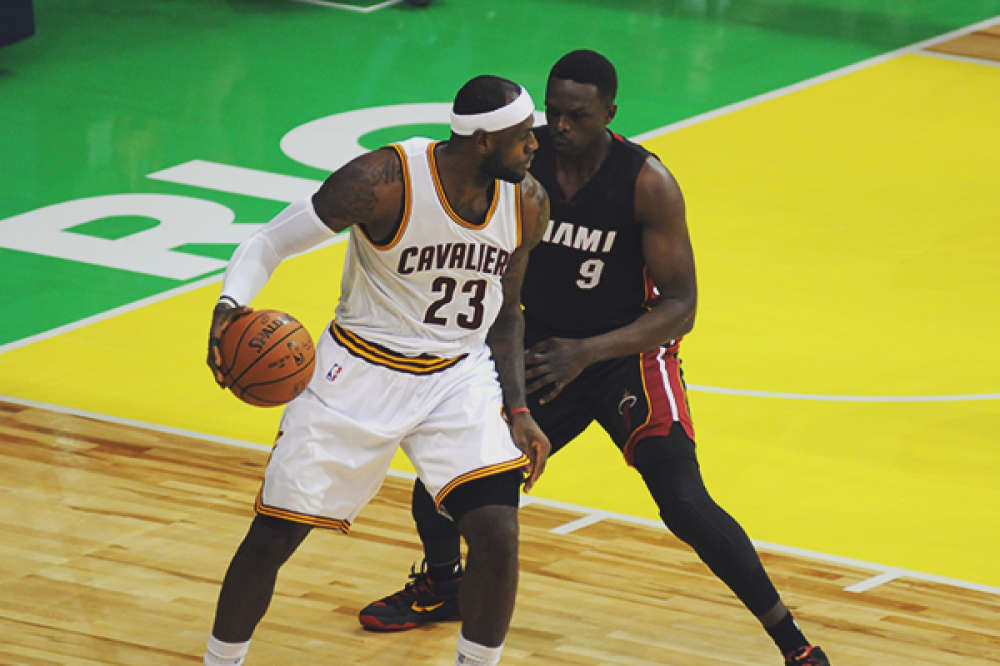Go to any sporting event, and you see countless people updating the social media world about their lives. In fact, with social media becoming an avenue to celebrate one’s successes and give others access into our lives, we even see athletes updating their social media accounts during sporting events and competitions. Indeed, even in high-pressure, high-stakes environments such as the Olympics, we see athletes like gold medalist Simone Biles posting updates throughout her time at the Olympics.
While such updates on Facebook, Twitter, or Instagram give family, friends, and fans a backstage look into the world of sports, engaging in social media around or during a competition may hinder an athlete’s performance. Take, for example, Australian swimmer Emily Seebohm, who stated that spending time on social media during the 2012 Olympics distracted her and reduced her focus, costing her the gold medal in the 100-meter backstroke. (She went home with the silver).1 Additionally, according to new research, engaging in social media around or during a competition may be associated with greater sport anxiety.2
What Is Sport Anxiety?
A subset of social anxiety, sport anxiety refers to the fear or anxiety that athletes may experience in sports performance situations. Individuals with sport anxiety often indicate that they perform well in practice situations, but they choke up, get too anxious, or fall apart during games and competitions. They also indicate experiencing a fear of failing and of disappointing others, as well as the pressure to do as well as they or others expect them to. Such thoughts lead to elevated anxiety, followed by difficulty focusing, and resulting in lower sports performance.3
How Does Social Media Affect Sport Anxiety?
Social media may place real or perceived pressure on individuals with sport anxiety, much as it places real or perceived high expectations of social performance on those who have social anxiety4. For example, well-meaning wishes of luck, comments predicting success or failure, or other competitors’ confident remarks may all serve to increase the pressure to do well and heighten the fear of failing.
To explore the relationship between social media use and sport anxiety in athletes around and during sporting events and competitions, researchers at Deakin University in Melbourne, Australia, obtained measures of sport anxiety and Facebook use in 298 athletes of various levels and sports.2 The results of the study indicated that 31.9 percent of the athletes had used Facebook during a game or competition, and that 68.1 percent had accessed it within two hours before a game or competition. Additionally, the amount of time spent on Facebook prior to a game or competition was significantly associated with sport anxiety, particularly regarding disrupted concentration.
Connection or Cause?
However, it is important to note that the study is cross-sectional and that conclusions about causality cannot be made. While further research is needed to examine if using social media causes decreased focus and sport anxiety (as Emily Seebohm asserted in 2012), the study suggests that athletes’ use of social media during or around sporting events and competitions may at least be related to decreased focus during sports performance.
Sources
1. Savov, Vlad. (2012). Olympic swimmer blames social media influence for failing to win gold medal. The Verge. Retrieved from: https://www.theverge.com/2012/7/31/3205954/olympics-social-media-distraction.
2. Encel, K., Mesagno, C., & Brown, H. (2017). Facebook use and its relationship with sport anxiety. Journal of Sports Sciences, 35(8), 756-761.
3. Smith, R. E., Smoll, F. L., & Schutz, R. W. (1990). Measurement and correlates of sport-specific cognitive and somatic trait anxiety: the sport anxiety scale. Anxiety Research, 2(4), 263-280.
4. Kross, E., Verduyn, P., Demiralp, E., Park, J., Lee, D., Shablack, H., Jonides, J., & Ybarra, O. (2013). Facebook use predicts declines in subjective well-being in young adults. PLOS One, 8(8).
Carol S. Lee is a clinical psychology doctoral student at University of Massachusetts Boston. She received her Bachelor of Arts in psychology from University of California San Diego in 2012 and her master’s in clinical psychology from UMass Boston in 2015. Carol works with Dr. Sarah A.
Hayes-Skelton to examine how and why therapeutic exposures and behavioral experiments in treatments for anxiety disorders work. In an effort to examine one piece of this, Carol’s current research draws from both social and clinical psychology to examine the process behind engaging in a behavior despite any fear or anxiety associated with that behavior. Carol and Dr. Hayes-Skelton collaborate to write articles for Anxiety.org.



